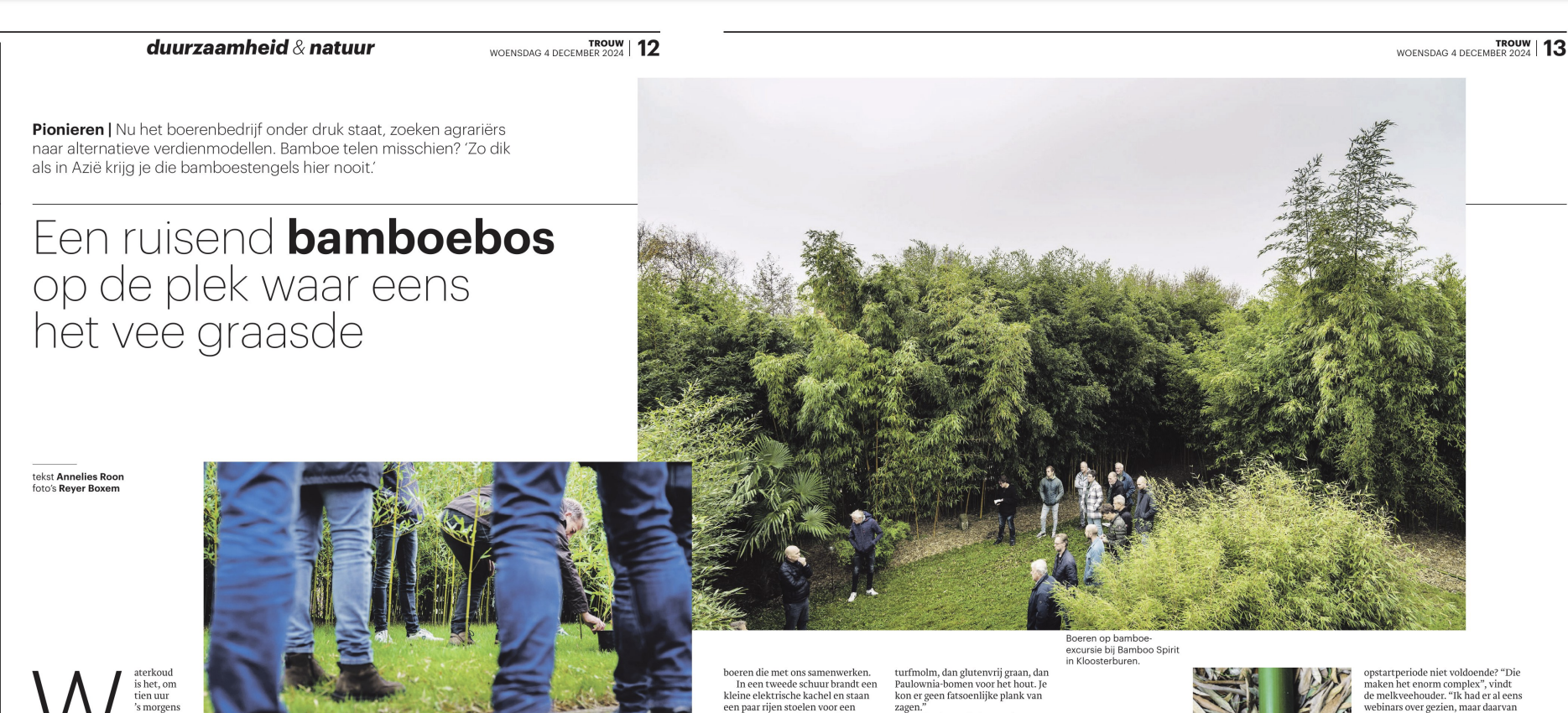The story took viewers to Reusel, where Jacob van den Borne, a traditional arable farmer, decided to turn part of his potato field into a bamboo field. Although his bamboo crop is still small – just a few acres – it reflects a broader movement in Europe. BambooLogic, a Nijmegen-based company, plays a central role in this by partnering with growers in several European countries, including Portugal, France, Greece and the Netherlands. This partnership aims to provide a more sustainable alternative to traditional materials and reduce dependence on Chinese imports.
Bamboo: A sustainable and versatile alternative
With the rapidly growing demand for eco-friendly products such as bamboo garden furniture, flooring and even clothing, the global bamboo market has doubled over the past decade. BambooLogic is committed to building a European bamboo industry, a project that not only provides economic benefits but also supports sustainability goals. “By growing bamboo in Europe, we save on transportation costs and reduce carbon emissions,” said Kjell Tahon, director of BambooLogic. Moreover, bamboo grows even on poor soils, making it an interesting option for farmers who want to give their land a second life.
CO₂ certificates as a source of income for farmers
In addition to selling bamboo, cultivation offers farmers an important additional source of income through CO₂ certificates. By storing CO₂ in their bamboo plantings, farmers can sell these certificates to local companies looking to reduce their CO₂ footprint. This system ensures that farmers earn extra income while local entrepreneurs can offset their emissions. With bamboo grown in Europe, BambooLogic wants to make a positive impact in the local economy and bring a step closer to a sustainable future.
Building a European bamboo industry thus provides opportunities for entrepreneurs, farmers and consumers and marks an important step in the transition to a circular economy.


